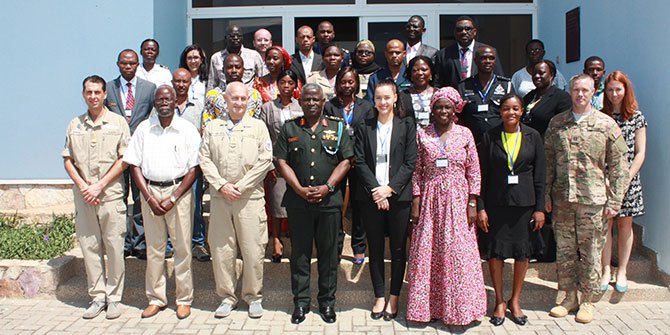In the first of a three part series looking at the Covid-19 pandemic and worker displacement, Emma Smith and Ross Smith look at the the accelerating effect the outbreak will have on the future of work.
We’ve heard a lot about the Fourth Industrial Revolution and how the nature of work will change as machine intelligence starts to pass human intelligence. Advancements in robotics, computer vision and speech, and machine learning will accelerate the application of automation to human tasks. It looks like the novel coronavirus has hastened the entrance into this future world of work. There has been a longstanding belief that artificial intelligence (AI) and automation would displace an increasing percentage of the workforce in the future. Some studies suggest that perhaps 30% of the workforce; potentially 800 million workers, will have their jobs disrupted by AI and automation in the next 10 years. According to Jaimovich and Siu, the term “jobless recoveries refers to the slow rebound in aggregate employment following recent recessions, despite recoveries in aggregate output.” There have also been numerous studies that show “jobless recoveries” as companies use the downturn to re-tool and deploy new technology, which is generally faster, more reliable, and cheaper in the long run.
We are here to suggest there is a new AI among us now. “AI” is not only an acronym for “artificial intelligence”, but “AI” now could be an acronym for “An Infection.” It’s not news to say that coronavirus is having a huge impact on the world of work. As we bring these worlds together, it’s worth a step back to understand that perhaps this virus marks the beginning of the Fourth Industrial Revolution, the age of AI, and that we are at the beginning of a new normal.
This is illustrated by the 10 million US workers filing for unemployment in the past two weeks. The Guardian reported as many as 6 million in the UK could be unemployed. Many of these lost jobs may be gone forever. Algorithms, robots, and automation – none of which ever get sick – will be developed and deployed while human workers are quarantined at home. According to U.S. Department of Labor data, “after the seven recessions from 1950 through the 1980s, it took 20 months, on average, before total employment reached its pre-recession peak. But in the three recessions since 1991, it has taken an average of 51 months for the labor market to heal, or 2.5 times as long.”
While this is a dystopian view at a societal level, we wanted to put forth a more optimistic view and look back to history. Some of our great masterpieces have come from quarantine periods: like Shakespeare’s King Lear written during quarantine from the London plague or Salvador Rosa’s Human Frailty painted in the midst of the Black Death. When we devote time to rest, our brains have time to reflect on experiences, make connections and become more creative. In Latin, the word for “leisure” is pronounced scola, which became the English word, school. The ancient Greeks saw quiet time as time that prompted learning and reflection, not idleness. Darwin, Charles Dickens, Ernest Hemingway, and others worked only in short bursts (Darwin for three ninety-minute chunks) and devoted the rest of their day to downtime. Self-isolation and social-distancing can lead us to learn, reflect, and grow – and in doing so, reskill ourselves for the coming new world of work.
Take a page from some of these ancient masters. Don’t squander this time in isolation. It’s easy to spend time surfing social media or watch movies online. While you are relaxing, employers around the world will be looking at how to keep their business alive, and that will mean more automation, robotics, and artificial intelligence applied to tasks that were previously done by humans, including you!
When the virus lifts, rather than being surprised by a lack of hiring, we can all be better prepared for a new world of work because we’ve leveraged this time to stoke our curiosity, to increase our knowledge and skills, and to learn new things that will help take society and the global economy to new levels as we humans adapt and augment the coming wave of machines.
Emma Smith (@emmyagsmith) is a humanitarian committed to using frontier technologies to tackle today’s greatest social and environmental challenges. Currently the Co-Founder and Chief Operating Officer at Eversend, Africa’s first neobank, Emma has been honored as a Forbes 30 Under 30 and Fellow of the Royal Society of the Arts. She has a BA with Distinction from Duke University and a MSc. from the London School of Economics.
Ross Smith, FRSA (@42projects) is Emma’s Dad; a Fellow of the Royal Society of the Arts; Director of Skype for Good at Microsoft; Author of The Practical Guide to Defect Prevention and holds seven U.S. patents. He is a board member of the Spreeha Foundation and a blogger for the Society for Human Resource Management (SHRM). His academic papers are published on ResearchGate.
The views expressed in this post are those of the author and in no way reflect those of the International Development LSE blog or the London School of Economics and Political Science.






Beautifully crafted piece,reminding us we are not owed a living but rather masters of our own destinies so self learning is such an important and on-going part of this.
The day we stop learning is the day we stop living!
Well done and Keep up the great work guys!